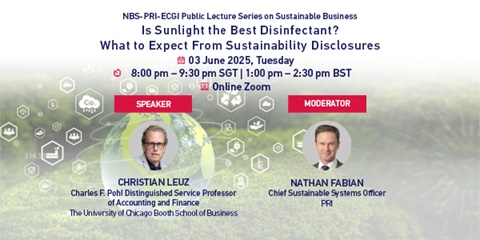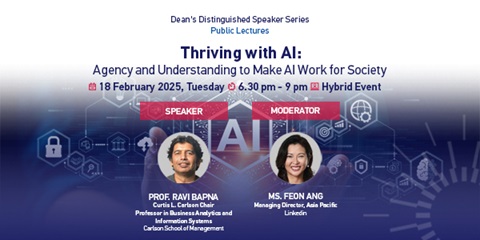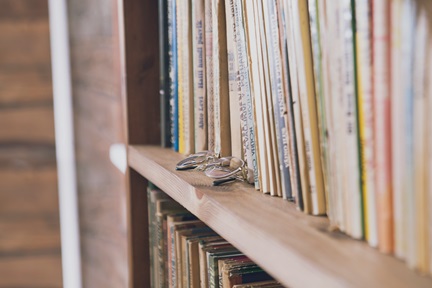Me &My Money; A year-long stint in London made an investor out of her
The importance of saving money did not hit home for insurance executive Candy Goh until she had to survive a year studying in pricey London on just GBP30,000 (S$48,000).
Life became a financial tightrope, given that GBP20,000 or so had to be set aside for tuition fees for her post-graduate degree and accommodation.
That left a paltry GBP10,000 to cover food, travel and recreation expenses, so careful planning, saving and a part-time job marking exam papers at the Institute of Actuaries were essential if she wanted to get through the year.
Ms Goh, 39, who did not have to worry about money growing up but now found herself having to pinch pennies every day, said: "I pivoted from being a spender to someone who understood the importance of saving during my time in London.
"With that experience, I started thinking of how I can make my savings work harder for me so that I can reach financial freedom earlier."
That prompted Ms Goh, the chief financial officer at insurance firm FWD Singapore, to start looking into investing, and she now has a diverse portfolio of stocks, insurance and property.
She chose to move into familiar territory first -- insurance products -- when she started working, before going into property a few years later after she had some savings and, eventually, stocks.
The insurance savings plans and investment-linked policies that she picked offered lower risk options and suited her lifestyle then. They also dovetailed well with her overall strategy, kick-starting her journey with low-risk assets before venturing into riskier ones.
An insurance savings plan involves committing a sum of money over a fixed period to earn interest and coverage, while an investment-linked policy typically combines insurance coverage with an investment fund.
She advises others that the best way to start would be to engage a professional who can better suggest the most suitable investment products depending on the person's goals and circumstances, as there are many options with varying levels of risk.
"At the end of the day, it is important to understand that insurance products are meant for long-term investment," she adds.
Ms Goh earned her degree from the Nanyang Technological University's Nanyang Business School before going on to do her master's in actuarial management at Cass Business School in London, graduating in 2008.
Before joining FWD Singapore, she worked as an actuary and held executive roles at various insurance companies, including Manulife, AXA and Tokio Marine Insurance Group.
She is married with no children.
What is in your personal portfolio? How were the average annual returns of your portfolio as a whole?
Insurance products and equities take up about 25 per cent each in my portfolio, and the rest is allocated to properties.
The insurance products are expected to provide returns of around 4 per cent on average. With regard to properties, I made a few small purchases around 2009 that gave more than 100 per cent returns over the next two to three years. My next purchase, in 2013, has probably made less than 5 per cent per annum.
Stocks are currently in the red after I sold off part of my holdings and broke even at that point.
What are your immediate investment plans?
I would like to expand and diversify my investment portfolio. Given that interest rates have risen so sharply, I may want to look into corporate bond investments.
If the opportunity arises, I hope to partner up with some like-minded friends and invest in a business, as I think it can be very fulfilling to own something and call it your own.
Describe your investing strategy. Has it changed over the years, and if so, how?
My philosophy, rather than strategy, is to build a base with low-risk assets and then gradually expand into higher-risk growth assets. I started off with what is most familiar to me -- insurance plans. Then I invested in properties, which I think is a good asset class in Singapore, and to also hedge against inflation.
Finally, when I had my basic investment needs covered, I ventured into equities, starting with blue-chip stocks and eventually dabbling into riskier ones.
How are you planning for retirement?
I am expecting $5 million of retirement funds, for myself, to fund between $5,000 to $10,000 per month of expenses when I retire.
I hope to retire by 50. My mortgage, as my current and only liability, will be fully paid off by then. I'm a very energetic and active person, and so would like to continue to be active during retirement, which could be achieved by working or possibly setting up my own business.
I hope to get into the aesthetics business, given that there are still a lot of growth opportunities in the market, and the speed at which technology advances in this field fascinates me.
However, by then, I would be working to fuel my interest rather than for money. That is the true financial freedom that I'm looking forward to.
What does money mean to you?
Money is a means to an end -- that end being the lifestyle I prefer, a good home for my family, extra money for a rainy day and funds for retirement -- but it is really just that. I place a lot more value in relationships with family and close friends, and spend a great deal of effort in maintaining them.
Money-wise, what were your growing-up years like?
I came from a middle-income, single-parent family and my lifestyle was rather average. I also have a younger brother. My mother used insurance as a form of disciplined savings. She bought insurance when she was younger and is seeing returns in the last 10 years as her endowments have matured progressively. This might have influenced my earlier investment choices when I started working.
We did not have to live from pay cheque to pay cheque and had enough money for a rainy day, so we would not be stressed out or need to borrow from others if something happened.
Growing up among family or relatives who did not know the significance of savings and preparing for bad days also shaped my values when I was a child. Over the years, I learnt the importance of savings through my conversations and observations with people.
Home is now...
A three-bedroom condo near East Coast Park.
I drive...
I co-own a BMW 318i with my husband. We bought this car after ensuring that we had built our basic financial safety net and had excess funds to stay on course for our financial goals after the purchase.
Source : The Straits Times




.tmb-listing.jpg?Culture=en&sfvrsn=8b2cb369_1)


